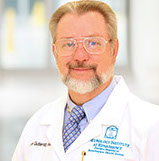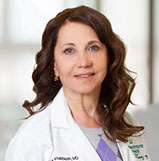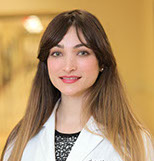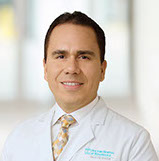
NEUROLOGY CARE
Services
We would like to give you peace of mind knowing that your love ones are well taken care of. Here are some of the services we offer.
Your Team
We are proud to work with some of the best medical professionals in the country. Our team will provide you with the quality, compassionate care you need.
Contact Us
We want to ensure you have all of the information you need. To learn more about the services we offer, our hours and location, please feel free to contact us.
About Us
The Neurology Institute at Renaissance
We are dedicated to providing excellence in neurologic care. Our health care providers work as a team to evaluate and treat patients using the most advanced techniques and technologies. As the leading neuroscience medical group in South Texas, we provide diagnostic treatment services for patients with disorders of the nervous system. With advanced technology on site, our physicians are able to fully examine any abnormalities in the body’s tissues to properly diagnose our patients.
It is the mission of the Neurology Institute at Renaissance to provide comprehensive world-class neurologic health services to patients in the Rio Grande Valley. Our medical experts are committed to delivering compassionate patient-centered care throughout a patient’s course of treatment.

Services
At the Neurology Institute at Renaissance, our medical staff is trained in the latest and most advanced technology to provide treatment in the following areas:
- Aphasia
- Ataxia
- Autonomic Disorders
- Carpel Tunnel/ Numbness
- Dementia & Memory Loss
- Double Vision/ Loss of Vision
- Dystonia
- Epilepsy
- Frequent Falls
- Gait Impairment
- Headache and Migraine
- Myositis & Myopathy
- Neuropathy
- Parkinson's Disease/ Alzheimer's Disease
- Syncope
- Tics and Abnormal Movements
- Tremor
- Vertigo

Your Doctors

Miguel Gutierrez, M.D.
Dr. Gutierrez received his medical degree from the Universidad Nacional Autonoma de Mexico. He conducted general medicine residency training at the ISSSTE Clinic-Hospital in Mexico City, Mexico. There he received an advanced degree in neurology. He completed residency training at the University of Arkansas Medical Sciences in Little Rock, Arkansas, where he was selected as Chief Resident.

Zuka Khabbazeh, M.D.
Dr. Zuka Khabbazeh received her residency training at the University of Cincinnati Medical Center in Ohio. She completed a fellowship in electrocephalography at Wayne State University and Harper Hospital as well as a fellowship in neuromuscular diseases and clinical electromyography at Henry Ford Hospital in Detroit, Michigan, where she attended medical school.

Gloria Mireles, M.D.
A Rio Grande Valley native, Dr. Gloria Mireles is a graduate of the University of Texas-Pan American. She received her medical degree from the University of Texas Medical Branch at Galveston, TX and conducted her neurology internship and fellowship at the University of Arizona Medical Center in Tucson, Arizona.

Felix Rivera, M.D.
Dr. Rivera received his medical degree from the University Autonoma of Guadalajara. He completed residency training in Neurology at New York Medical College in Valhalla, NY and conducted a fellowship in Neurophysiology at the Medical College of Georgia in Augusta, Georgia.
What is dementia?
In the most general sense, dementia can be defined as a decline in cognitive performance from some previous state.
How is Alzheimer’s disease different from dementia?
Alzheimer’s disease is one common form of dementia in the elderly, with an estimated 5.1 million Americans over the age of 65 affected.
What causes dementia?
While there are clearly some cases of dementia that are caused by the presence of genetic mutations or the presence of pro-dementia genes, it appears that the vast majority of cases of dementia in the elderly cannot be explained on the basis of genetics alone. Aging is the single biggest risk factor for the development of dementia. Obesity and diabetes may be potent modulators of dementia. Lastly, studies are still needed to understand how pathology in the brain can possibly promote specific aspects of dementia.
How is dementia different from Alzheimer’s Disease?
Alzheimer's Disease is the most common form of dementia, which is a general term for memory loss and other intellectual abilities serious enough to interfere with daily life. Alzheimer's disease accounts for 60 to 80 percent of dementia cases.
Does Alzheimer’s Disease only affect older adults?
Alzheimer's Disease is not a normal part of aging, although the greatest known risk factor is increasing age, and the majority of people with the disease are 65 and older. But, Alzheimer's Disease is not just a disease of old age. Up to 5 percent of people with the disease have early onset Alzheimer's (also known as younger-onset), which appears when someone is in their 40s or 50s.
What are warning signs of Alzheimer’s Disease?
- Memory loss that disrupts normal life
- Challenges in planning or solving problems
- Difficulty completing familiar tasks at home, work or at leisure
- Confusion with time or place
- Trouble understanding visual images and spatial relationships
- New problem with words in speaking or writing
- Misplacing things and losing the ability to retrace steps
- Decreased or poor judgment
- Withdrawal from work or social activities
- Changes in mood and personality
Is there a cure for Alzheimer’s Disease?
Alzheimer's Disease has no current cure, but treatments for symptoms are available and research continues.
What is a stroke?
A stroke occurs when the blood supply to part of the brain is blocked or when a blood vessel in the brain bursts.
What are the different kinds of stroke?
There are two kinds of stroke. The most common kind of stroke is called ischemic stroke. It accounts for approximately 80 percent of all strokes. An ischemic stroke is caused by a blood clot that blocks or plugs a blood vessel in the brain. The other kind of stroke is called hemorrhagic stroke. A hemorrhagic stroke is caused by a blood vessel that breaks and bleeds into the brain.
What are the symptoms of a stroke?
Major signs of stroke include:
- Sudden numbness or weakness of the face, arm, or leg
- Sudden confusion or trouble speaking or understanding others
- Sudden trouble seeing in one or both eyes
- Sudden dizziness, trouble walking, or loss of balance or coordination
- Sudden severe headache with no known cause
What is Parkinson’s disease?
Parkinson’s disease (PD) is a chronic and progressive movement disorder that involves the malfunction and death of vital nerve cells in the brain, called neurons.
What causes Parkinson’s Disease?
Parkinson's disease is caused by the progressive impairment or deterioration of neurons (nerve cells) in an area of the brain known as the substantia nigra.
How do you treat Parkinson’s?
Although there is currently no cure for Parkinson’s, there are treatment options available such as medication and surgery to manage its symptoms. Levodopa is the most widely prescribed Parkinson’s medication, and people often take several other medications to manage the disease. Surgical options, such as deep brain stimulation, may help alleviate a person’s Parkinson’s symptoms if and when they stop responding favorably to medication.
What is epilepsy?
Epilepsy, which is sometimes called a seizure disorder, is a disorder of the brain. A person is diagnosed with epilepsy when they have had two or more seizures.
What is a seizure?
A seizure is a short change in normal brain activity. Seizures are the main sign of epilepsy.
If I have a seizure, does that mean I have epilepsy?
Not always. Seizures can also happen because of other medical problems. These problems include
- A high fever
- Low blood sugar
- Alcohol or drug withdrawal
What causes epilepsy?
Epilepsy can be caused by different conditions that affect a person's brain. Some known causes include:
- Stroke
- Brain tumor
- Brain infection, like neurocysticercosis.
- Traumatic brain injury or head injury
- Loss of oxygen to the brain (for example, during birth)
- Some genetic disorders (such as Down syndrome)
- Other neurologic diseases (such as Alzheimer’s Disease)
For 2 in 3 people, the cause of epilepsy is unknown. This type of epilepsy is called cryptogenic or idiopathic.
How is epilepsy diagnosed?
A person who has a seizure for the first time should talk to a healthcare provider, such as a doctor or nurse practitioner. The provider will talk to the person about what happened, and look for the cause of the seizure. Many people who have seizures take tests such as brain scans for a closer look at what is going on.
How is epilepsy treated?
The most common treatments for epilepsy are:
- Medicine: Anti-seizure drugs are medicines that limit the spread of seizures in the brain. A healthcare provider will change the amount of the medicine or prescribe a new drug if needed to find the best treatment plan. Medicines work for about 2 in 3 people with epilepsy.
- Surgery: When seizures come from a single area of the brain (focal seizures), surgery to remove that area may stop future seizures or make them easier to control with medicine. Epilepsy surgery is mostly used when the seizure focus is located in the temporal lobe of the brain.
- Other treatments: When medicines do not work and surgery is not possible, other treatments can help. These include vagus nerve stimulation, where an electrical device is placed, or implanted, under the skin on the upper chest to send signals to a large nerve in the neck. Another option is the ketogenic diet, a high fat, low carbohydrate diet with limited calories.
What is carpal tunnel syndrome?
Carpal tunnel syndrome occurs when the median nerve, which runs from the forearm into the palm of the hand, becomes pressed or squeezed at the wrist.
What are the symptoms of carpal tunnel syndrome?
Symptoms usually start gradually, with frequent burning, tingling, or itching numbness in the palm of the hand and the fingers, especially the thumb and the index and middle fingers.
What are the causes of carpal tunnel syndrome?
Carpal tunnel syndrome is often the result of a combination of factors that increase pressure on the median nerve and tendons in the carpal tunnel, rather than a problem with the nerve itself. Most likely the disorder is due to a congenital predisposition.
How is carpal tunnel syndrome treated?
Non-surgical treatments
Medication: In special circumstances, various medicines can ease the pain and swelling associated with carpal tunnel syndrome. Nonsteroidal anti-inflammatory medications, such as aspirin, ibuprofen, and other nonprescription pain relievers, may ease symptoms that have been present for a short time or have been caused by strenuous activity. Corticosteroids (such as prednisone) or lidocaine can be injected directly into the wrist o ber taken by mouth (in the case of prednisone) to relieve pressure on the median nerve and provide immediate, temporary relief to persons with mild or intermittent symptoms. Additionally, some studies show that vitamin B6 (pyridoxine) supplements may ease the symptoms of carpal tunnel syndrome.
Exercise: Stretching and strengthening exercises can be helpful in people whose symptoms have abated.
Alternative therapies: Acupuncture and chiropractic care have benefited some patients but their effectiveness remains unproved. An exception is yoga, which has been shown to reduce pain and improve grip strength among patients with carpal tunnel syndrome.
Surgery
Open release surgery, the traditional procedure used to correct carpal tunnel syndrome, consists of making an incision up to 2 inches in the wrist and then cutting the carpal ligament to enlarge the carpal tunnel. Endoscopic surgery may allow faster functional recovery and less postoperative discomfort than traditional open release surgery.
Frequently Asked Questions
We are here for you when you need us
We hope you found all of the information that you needed. If you have any questions or if you would like to make an appointment, please call us and we will schedule one for you at your immediate convenience.
In an effort to make neurology services more accessible, the Neurology Institute at Renaissance has two locations to better serve you.
Dr. Zuka Khabbazeh and Dr. Gloria Mireles
2821 Michael Angelo Dr., Suite 306
Edinburg, Texas 78539
Hours: 8:00 AM-5:00 PM
Phone: 956-362-2440
Dr. Miguel Gutierrez and Dr. Felix Rivera
2108 S. "M" Street, Suite 4
McAllen, Texas 78503
Hours 8:30 AM-5:30 PM
Phone: 956-686-8100
Contact Us
Doctors Hospital at Renaissance
5501 S. McColl Road, Edinburg, Texas 78539
(956) DOCTORS / (956) 362-2440
Neurology Institute at Renaissance /
Doctors Hospital at Renaissance
Health System
© 2016. All Rights Reserved.
